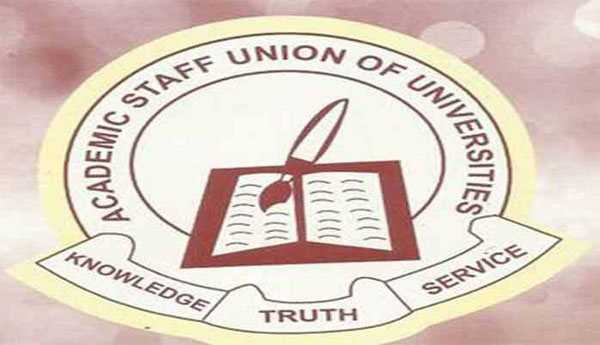The Academic Staff Union of Universities (ASUU) has again explained why the Federal Government should not tamper with the operations of the Tertiary Education Trust Fund (TETFund) under the Tax Reform Bills currently before the National Assembly for amendment.
The union cautioned President Bola Tinubu and the leadership of the National Assembly-Godswill Akpabio (Senate President) and Tajudeen Abbas (Speaker, House of Representatives) to be wary about the huge negative consequences that will come upon public tertiary education and Nigeria’s economy by extension if TETFUND should be shut down.
While appealing to good people of Nigerians across strata to rise up now and prevail on government to put aside its intention to scrap the 14-year-old TETFUND, which its describes as the backbone of public tertiary schools in Nigeria for another establishment known as Nigeria Education Loan Fund(NELFUND), which has a clear different mandate, the union declared that Nigerian massess would certainly suffer the more if TETFUND should be scrapped.
The union raised this concern at a press conference organised by its Lagos Zone held at the University of Lagos(UNILAG) Akoka, on Friday.
Addressing journalists with the leadership of the seven universities- UNILAG, TASUED, FUNAAB, LASU, LASUED, LASUSTECH and OOU, that make up the zone in attendance, the zonal coordinator, Prof Adelaja Odukoya, who is also the Dean of Faculty of Social sciences, UNILAG, said the union has observed with keen interest the ongoing debate in the National Assembly on the review of the tax system and the proposal to abrogate the Education Tax Act and replace it with the Education Development Fund from where TETFUND will go into extinction by 2030 for NELFUND.
He emphasised that it would be a costly mistake for the country that will be very difficult to correct for many years if the National Assembly should go ahead and close down TETFUND, describing such venture as self-serving.
According to him, TETFund was a child of necessity and a product of serious crisis of infrastructural decay resulting from acute underfunding of the nation’s public universities.
“And for about 15 years, TETFund has fulfilled its interventionalist function in positively driving the public tertiary education sector and delivering its benefits to the door step of the common man whose children would have been unable to have access to quality education.”
ALSO READ: We’re still on strike — Taraba varsity SSANU
Odukoya noted that of a truth is that without TETFund, Nigerian public universities would have gone the way of the public primary and secondary schools that are no longer attractive to the elites.
It is also no gainsaying according to him, that several public universities, especially those owned by the state governments have literally become TETFund universities as majorities of their structures, laboratories and funds for the training of academics are from TETFund yearly interventions.
Even though this is a sad and regrettable development where governments at both federal and state levels have turned the establishment of universities as constituency projects without thinking about how to fund them, to now contemplate abrogating TETFund that has always come to rescue and replace it with NELFund which has different mandate is highly unpatriotic.”
Odukoya explained further that objective of NELFUND is to guarantee that access to higher education is not impeded by financial limitations and asked rhetorically of “what do the Nigerian political elite believe their loans would achieve if the state and conditions of the existing public universities (both structure and function) are inadequate, dysfunctional and in complete comatose; reversed to those of the pre-TETFund?”
Similarly, another notable differences between TETFUND and NELFUND are their scopes of support, funding mechanisms, and beneficiaries.
According to him, while the former focuses on institutional support by way of funding infrastructure, research, and staff development in public tertiary institutions, the later targets only individual students seeking financial aid for their education.
“So, what will happen if you give students loans and there are no good infrastructure and facilities in their laboratories, libraries, hostels, lecture halls and there are no also committed lecturers because of hostile working environment and no meaningful research activities because of lack of funding,” he asked rhetorically.
“So, it is important that we all think deeply and factor in all angles before we take a decision that will take us backward as a country not even in far distant but near future.”
As far as ASUU is concerned, our interest on this matter is for the general good of public education and Nigeria by extension, he concluded.
READ MORE FROM: NIGERIAN TRIBUNE
